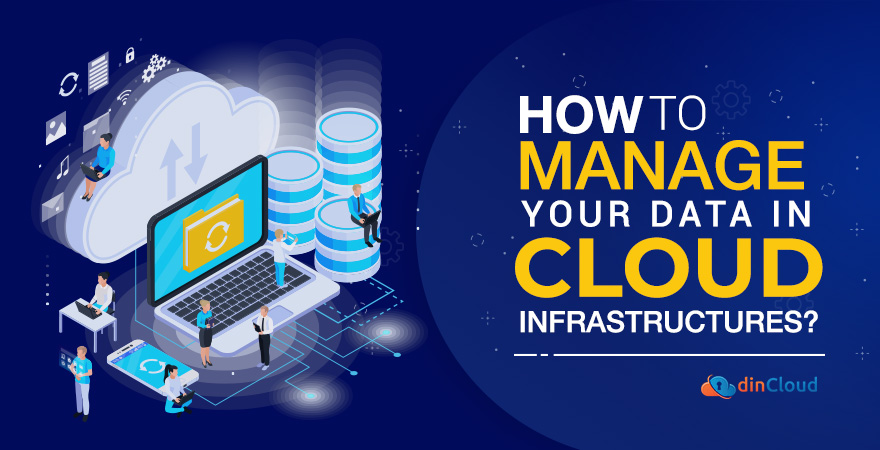We are currently thriving in a data driven world. From the simplest processes to the most complex ones, data is an inescapable reality. The influence and adoption of Cloud solutions is constantly on the rise over the past few years.

This steady growth trajectory has been propelled to new heights over the past few eventful months. As remote work finds its way to the cloud, it was but natural for data and other support elements to move over to the cloud as well.
Also Read: How Desktop as a Service (DaaS) Overcomes Work from Home Challenges?
However, data management in the case of cloud infrastructures is quite different from on premise protocols. In case of the latter, you enjoy almost full autonomy over your data but that’s not entirely the case when it comes to cloud solutions or services.
Cloud powered solutions and services, such as Hosted Virtual Desktops or Hosted Virtual Servers are proving a great value proposition for thousands of businesses. These are some of the compelling advantages of availing the Cloud for data related needs.
Instant Scalability
The cloud offers instant scalability for your data oriented needs. As your operations grow in magnitude and complexity, so will the amount of data being generated. Cloud solutions, such as Hosted Virtual Servers provide you with instant scalability for data.
Also Read: DaaS and Work from Home (WFH) – The Perfect Duo
Responsiveness
Data lies at the center of your ability to respond to business opportunities and challenges. Over the cloud, you have all your crucial data converged at a central location. In some cases, it may extend to a handful of dispersed data centers.
Regardless of that, having your mission critical data all at one place greatly improves your responsiveness as a business. You can analyze business trends with far more speed and accuracy, once you have all the dataset at one place.
Resilience
The cloud improves your data resilience to a great extent. In case of the cloud, your data is not stored sporadically across multiple endpoint devices. This improves the resilience posture of your enterprise when it comes to security of data.
Also Read: Why Cloud Governance is Key to Security and Compliance?
Some Stats about Data
According to Statista, a company that specializes in market and consumer data, the size of globally created and used data could touch 59 Zetta bytes in the year 2020. Most of this data is literally powering the modern day digital economy across the globe.
United Nations Conference on Trade and Development (UNCTAD) estimates that today’s digital economy alone accounts for over 15% of the world’s combined GDP. Cloud based data storage is playing a leading role in the whole process.
Also Read: How to Transition from Temporary to Long-term Remote Work?
Leveraging Cloud Data for AI, ML and IoT
When we talk of holistic digital products and solutions, they are possible only through a strong database at the back. Artificial Intelligence (AI) is revealing completely new perspectives and opportunities for enterprises.
Machine Learning (ML) is yet another domain that relies heavily over data. A distributed cloud driven approach to data is crucial for ML as well as Internet of Things (IoT). Data will be the lifeblood of initiatives such as auto driving cars and smart cities.
Also Read: Cloud Spending to Increase as a Ratio of Total IT Spending
How to Fulfill Cloud Data Obligations?
The foremost aspect of managing your data in the cloud is its security. You must incorporate data security measures such as access management, backups and restoration measures at the organizational level.
Regulatory compliance is another key area that will need a lot of attention. Where exactly in the cloud, how and with which Cloud Service Provider (CSP) you maintain data are key questions to ask yourself.
Depending on your relevant industry, you will also have to assess whether your cloud provider meets the compliance standards for your specific industry or otherwise. Presently, regulations are quickly becoming tougher with every passing day.
Towards the end, there is the all important aspect of using cloud data responsibly. While this condition is not limited to just the cloud, it becomes all that more important in case of cloud infrastructures.
Also Read: Your One Stop Guide to Disaster Recovery (DR)
Conclusion
Given the increasing importance of the Cloud, you must have a proper data management plan in place. This should include key items such as security, compliance, scalability and accessibility of the data you generate, process or produce.
Contact dinCloud for some of the best cloud solutions that are not only secure, but also comply with some of the best international standards for privacy and security.


